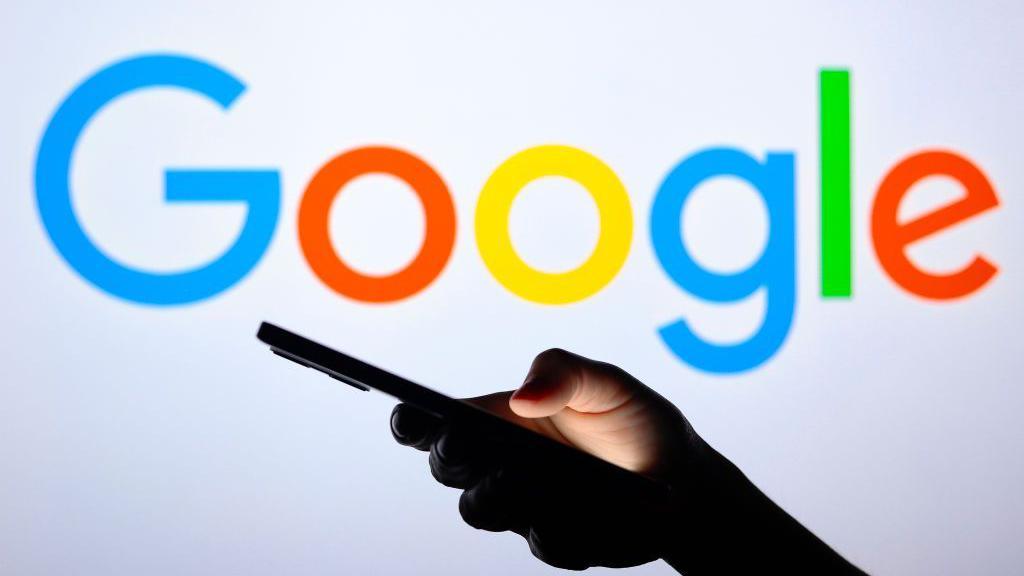What could Google monopoly ruling mean for you?

- Published
The tech world is paying close attention to what happens to Google after a judge ruled in August that it illegally monopolised online search.
A potentially seismic ruling for the industry and landscape of web search, it may have similarly seismic consequences for Google.
The US government has asked the judge in November to consider ordering Google's break-up - such as by selling its Chrome browser - to reduce its search market dominance.
But getting to this stage has taken four years, and Google-parent Alphabet's plans to appeal will no doubt see this legal process continue for some time yet.
For now, here's what the ruling and so-called "remedies" for Google might mean.
Breaking up the band
Breaking Google's business up into smaller chunks is perhaps the most drastic move floated as a response to August's ruling.
But the Department of Justice (DOJ) has asked US District Judge Amit Mehta to consider doing so as he mulls what action - or "remedies" - he should order to curb Google's monopoly.
A filing to the court on Wednesday 20 November said the tech giant should be forced to sell its Chrome browser - the world's most popular and an effective highway for accessing its search engine.
Google is, however, more than just search.
Just look at Android, a firm it bought for $50m (£39.3m) in 2005, which now runs on the majority of smartphones - or YouTube, a $1.65bn acquisition in 2006, which now generates many multiples of that in revenue each year.
The DOJ has suggested, external Google should be forced to divest Android, not just Chrome, as a "straightforward" way to stopping it promoting its search engine over rivals' - though it also offered behavioural remedies as an alternative.
In a blog post, external Google said having to sell Chrome and potentially Android could make the products less secure and private.
Google it
Another potential remedy centres on Google's practice of paying other companies to use it.
The US said Google was currently paying firms like Apple huge amounts of money each year to be pre-installed as the default search engine on their devices or platforms.
The judge agreed.
The contention is, had Google never spent that money, the big firms might have been encouraged to develop their own search experience.
Instead, Apple's Safari browser for example uses Google by default whenever you use it to search the web.
If remedial action significantly affected Google's ability to pay other companies to use it, perhaps those firms might start a rival.
Here though they would run up against Google's incredibly strong customer recognition for search. Despite its own high brand profile, it is hard to imagine telling someone to "Apple" something.
The iPhone-maker will of course be keen to keep the money from Google rolling in, which according to one analyst amounted to $20 billion in 2022.
“Any disruption to the revenue stream will have significant implications for Apple," said Dipanjan Chatterjee from Forrester Research.
"As the case works through the legal system, and the likely outcome appears to be opening up search engine exclusivity, you can fully expect a brand as obsessed as Apple is about customer experience to have a Plan B to ensure a smooth transition for its customers.”
Hard to shift
Something that's easier to imagine is some kind of choice screen, where people opening a browser for the first time are asked whether they'd like to use Google or an alternative like Microsoft's Bing.
The DOJ has recommended the court look to establish choice screens for users who haven't already selected a default search engine users in their proposed remedies.
It is somewhat harder to picture that causing people to abandon Google in their droves, however, for the simple reason that for most people it simply works well.
Those of us with grey hairs will recall Google being one of several search engines to emerge at the dawn of the internet, with familiar rivals including Yahoo and Ask (formerly AskJeeves), and possibly less-familiar rivals including Lycos and AltaVista.
But over the next decade, Google didn’t just become the dominant player in the market, it became part of the way we speak.
Despite Microsoft launching its rival, Bing, in 2009, nothing has yet knocked Google off its perch.
Microsoft boss Satya Nadella testified in Google's trial, perhaps hoping a judgment like this could finally help give Bing wings.
"The court may seek other ways to dismantle Google’s position as a default search engine but some of those remedies likely go beyond the facts driving this case," said Professor Anu Bradford of Columbia Law School.
"For example, the EU is going further with its recent Digital Markets Act that forces even Google’s own Android phones to present users with a 'choice screen' that lets the user choose one’s preferred search engine when setting up the phone.
"One question is whether this new ruling paves way for such regulatory demands in the future."
It takes time
Whatever happens next, past experience suggests it won't happen quickly.
Back in 1999, Microsoft found itself in a very similar situation to where Google is now.
The firm had just been found by a US judge to have created a monopoly, and a year later a court ordered the firm to be broken up.
Microsoft appealed the decision, and in 2001 the original decision to break it up was overturned.
By the end of 2002 Microsoft had agreed a settlement with the US Department of Justice, which a judge accepted.
But some US states disagreed, and it wasn't until 2004 - five years after the original ruling - that the settlement was officially signed off.